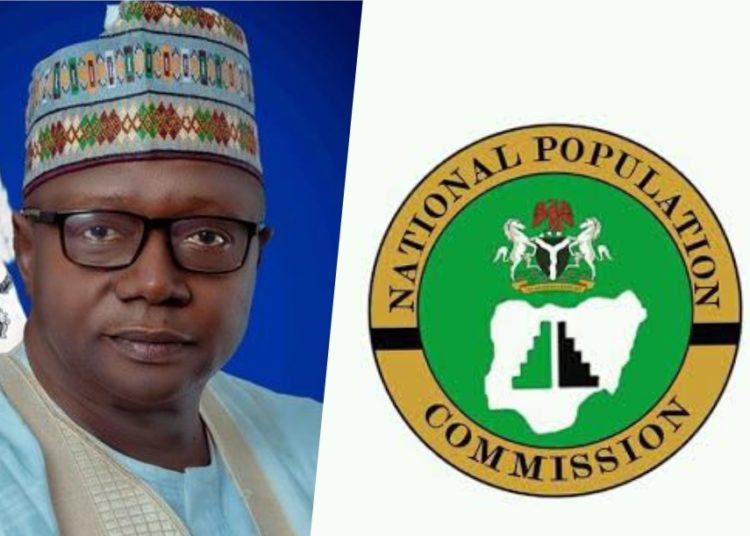The National Population Commission (NPC) has given an indication of a possible paradigm shift in the modalities for carrying out the upcoming 2023 population census.
It said that religion and ethnicity will not be featured in the compilation of individual’s data. This comes as a result of protests from some Nigerians who accused the commission of planning to do so. The NPC refuted this allegation and stated that it had no intention of including religion and or ethnicity in the 2023 population census. And while this might seem the appropriate thing to do, it will actually be beneficial to the country if religion and ethnicity were added in the questionnaires.
The nation’s last population census was in 2006. With the country so long overdue for another head count, everyone is keen on what the outcome would be. And as NPC prepares, with first having a trial run this year, some Nigerians have cited several uncomfortable reasons why ethnicity and religion should not be cited in the 2023 population census. Complaints range from: how this would further create disunity, how people would take negative advantage of inflating the numbers to suit one religion over another or one ethnicity over another. Also important is the probable manipulation of the data for political reasons.
In our considered opinion, in previous exercises, these negative attitudes had been the case. However, there are vital benefits to be gained from adding ethnicity and religion to population census in Nigeria. First, the two factors have become integral part of the nation’s socio-political life meticulously enshrined in the constitution. Downplaying it in the exercise will amount to living in denial.
Furthermore, census is defined by most as an official survey of the population of a country, which is conducted in order to find out how many people live in that country, to enable government officials obtain details of such things as people’s ages and jobs.
According to an online media report, population census is also used for measuring the size of population and knowing the number of people in the country as well as the society’s structure. It also helps to determine the number of taxable adults which in turn assists in estimating the amount of revenue that can be gained from the tax sector.
Census also helps to forecast the country’s economic needs such as, electricity, housing, food, etc. just as it assists in determining the number of unemployed citizens and the general standard of living of the citizens in the country as well as reveal the level of manpower, of people working in a country.
An accurate census provides information on the population density, assists the government in the distribution of resources. The data so generated also gives the country’s government an idea of what kind of social amenities ought to be made available in specific areas, such as health, housing, water, electricity, education and others. It also helps the government in seeking assistance from foreign countries and international agencies. With all of this information in place, the government can better plan for its citizens.
However, while several Nigerian citizens have voiced their disapproval for the inclusion of religion and ethnicity in the 2023 census questionnaires, some have expressed their approval by arguing that Nigerians would like to know the number of people practising the various religions as well as the largest ethnic group.
As a newspaper, it is our considered opinion that it is rather beneficial to have this information included. With population census of 2023 including religion and ethnicity, the federal government will know how to plan adequately for the various ethnic groups in Nigeria, which are over 371. In terms of religion, the two dominant ones are Christianity and Islam. But there are other religions in Nigeria, and the exercise is expected to capture all the major indices that propel the life of the nation.
It must be stated that the fear of most citizens is not necessarily the reflection of matters like religion or ethnic affiliation in the data collection processes. It is more of the mischievous and tendentious manipulation of those facts of the nation’s life by certain dubious elements. Christians are proud to be Christians just as Moslems are equally proud of their faith. Traditional African religions, where they apply, will be satisfied that their religious fervour was included in the exercise.
It is pertinent to stress that these facts are included in the data collection efforts of most other countries not only in developed societies but also in under developed ones. The emphasis, usually, is more on the sense of patriotism of the officials carrying out the exercise and their ability to eschew parochial interests and demonstrate true nationalism which is needed in such sensitive assignments.
We’ve got the edge. Get real-time reports, breaking scoops, and exclusive angles delivered straight to your phone. Don’t settle for stale news. Join LEADERSHIP NEWS on WhatsApp for 24/7 updates →
Join Our WhatsApp Channel










